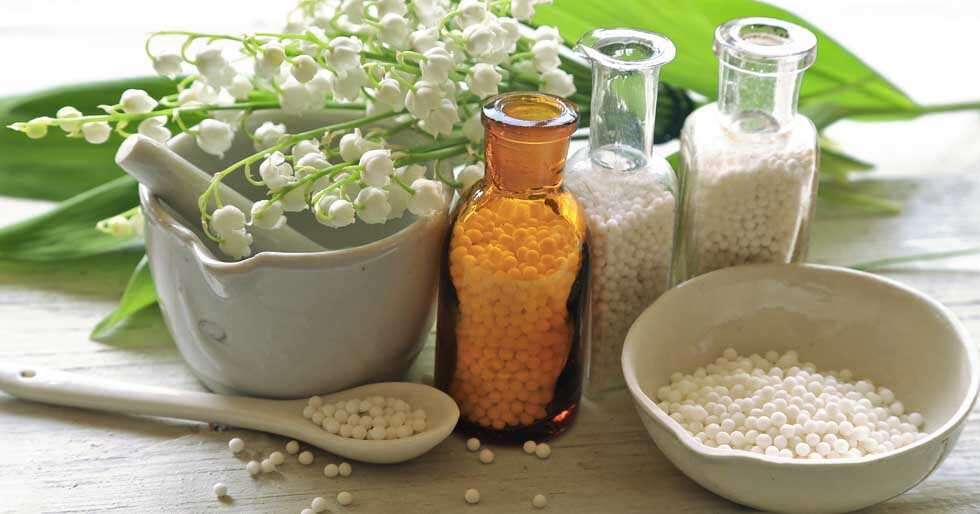Homeopathy is a comprehensive alternative medicine approach that aims to improve your body’s healing mechanisms. Homeopathic medicines are at the heart of this profession, with specific concepts and formulations. What medicines are used in homeopathy? Or what is homeopathy ingredients?
IVitality walks you through the exciting realm of homeopathy, highlighting the exact medications used and their distinct properties.
What are Considered Homeopathic Drugs?
Homeopathy is based on “like cures like” and potentization. The former proposes that a chemical that causes sickness symptoms in a healthy person may be used to treat the same symptoms in a sick person.
Meanwhile, potentization is a gradual dilution and succussion (vigorous shaking) procedure that improves the medicinal capabilities of a drug while reducing its toxicity.
The products of our homeopathy holistic approach are frequently promoted as natural, safe, and effective alternatives to authorized prescription and non-prescription medications. Homeopathic products can comprise various materials, including plant extracts, healthy or diseased animal or human sources, minerals, and chemicals.
What is Homeopathy Ingredients?
Homeopathic medicines begin with ingredients like herbs, minerals, or animal products. These components are first crushed and dissolved in a liquid (typically grain, alcohol, or lactose), agitated mechanically, and then stored.
What Does Science Say About the Effectiveness of Homeopathy?
In 2015, the Australian government’s National Health and Medical Research Council did a detailed evidence evaluation. What’s the conclusion? There is still a need for convincing proof that homeopathy is helpful for any health problem.
It is vital to note that the research included in this review has to fulfill stringent standards. They need a large sample size (more than 150 participants), the highest methodological quality rating, and additional measurements. The assessment included 57 systematic reviews and 176 individual research. Right now, the Australian government is conducting a new evaluation of evidence.
Homeopathy is a contentious issue. Some essential notions do not correspond to fundamental scientific principles. For example, homeopathic treatments might be so diluted that the “active ingredient” is practically impossible to quantify. This is a hurdle when thoroughly researching these items. However, the new study is looking at the physical properties of these preparations to see if we may better comprehend them in the future.
What Medicines are Used in Homeopathy?
Understanding that the following ingredients are the foundation of homeopathic medicines is essential to comprehend what medicines are used in homeopathy.
Plant-Based Medicine
Medications derived from plants are frequently used in homeopathy. Plant-based prescriptions are a primary component of the homeopathic pharmacopeia. For instance, Arnica montana has anti-inflammatory characteristics. This plant is known as wolf’s bane, mountain tobacco, and mountain arnica.
Similarly, Calendula officinalis has wound-healing capabilities. It is also referred to as pot marigold or simply marigold.
Mineral-Derived Medications
Minerals are another critical component of homeopathic treatments. For instance, Calcarea carbonica is obtained from oyster shells. It is used to treat metabolic and bone health issues. The preparation includes multiple dilutions to ensure the final product is robust and safe to consume.
Animal-Sourced Medicines
Homeopathy employs compounds derived from animals worldwide, such as Apis mellifica from honeybee venom. The preparation procedure, which is widely used for redness, swelling, and stinging discomfort, eliminates toxic materials while keeping the therapeutic characteristics.
Individualization in Homeopathy
One of the distinctive qualities of homeopathy is its accentuation on customized treatment. Homeopaths don’t use a one-size-fits-all approach; instead, they look at your physical, mental, and emotional state before giving you the best remedy. This extensive methodology addresses the ailment’s fundamental wellspring, empowering long-term well-being.
Dispelling Misconceptions
Skeptics frequently doubt the effectiveness of highly diluted chemicals in homeopathy. Proponents say the original substance’s slight energy imprint determines its potency and efficiency.
While scientific proof remains complex, anecdotal evidence and decades of practice contribute to its enduring appeal.
Safety and Side Effects
Homeopathic medications are typically considered safe, particularly when recommended by a skilled practitioner. The high dilution levels reduce the likelihood of harmful effects, making homeopathy an enticing alternative to traditional therapy.
However, it is critical to check with a healthcare expert before beginning homeopathic therapies, particularly for chronic or severe diseases.
The Potent Puzzle
Homeopathic medications are offered in various potencies, each identified by a number value. The higher the potency, the more diluted and potentized the drug gets.
Common potencies include 6C, 30C, and 200C. Our experienced and competent practitioners carefully choose the potency depending on the patient’s symptoms, constitution, and the nature of the illness.
Click here to read about How Long Does It Take for Homeopathy to Work?
The Bottom Line
In the complicated tapestry of learning what medicines are used in homeopathy, the medications utilized are critical in managing various health issues. Whether derived from plants, minerals, or animals, these treatments adhere to the concepts of similarity and potency. As with functional medicine services, it is critical to approach homeopathy with an open mind, acknowledging its unique character and the possible advantages it may provide to people seeking alternative avenues to treatment.

